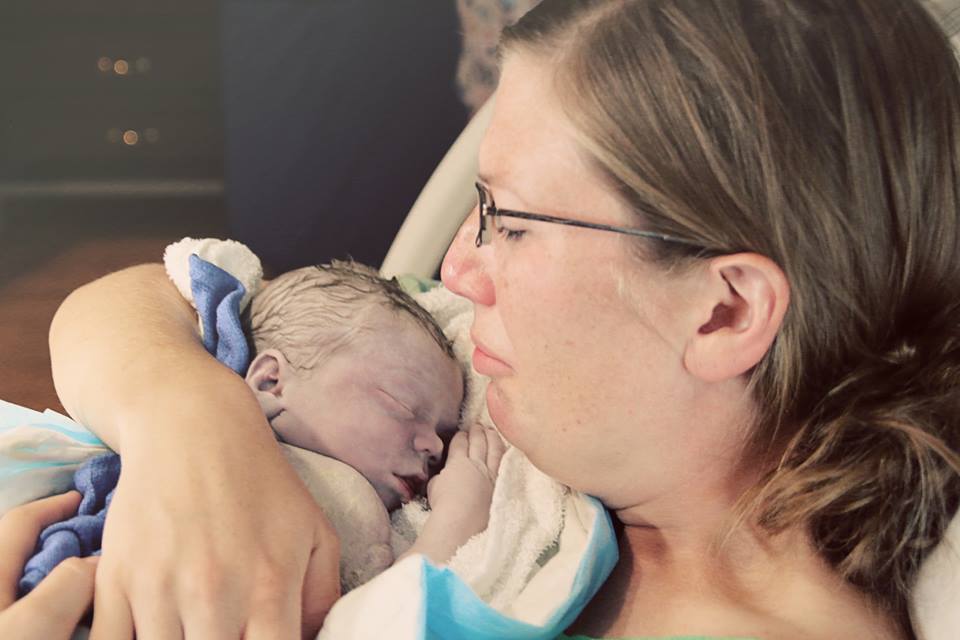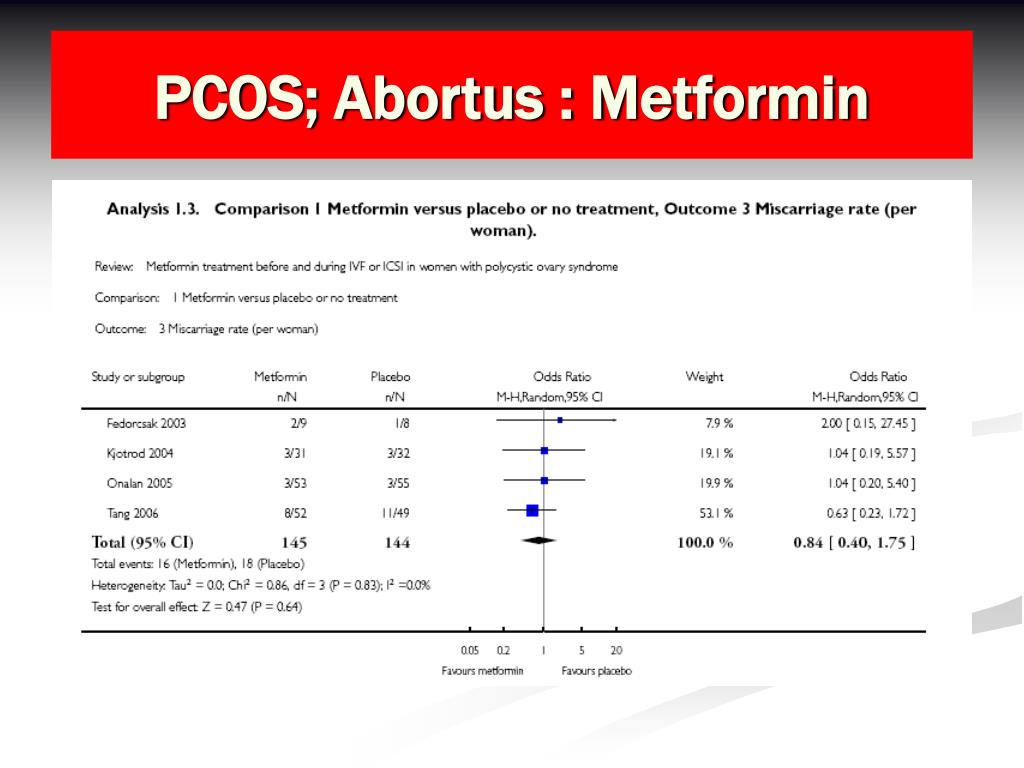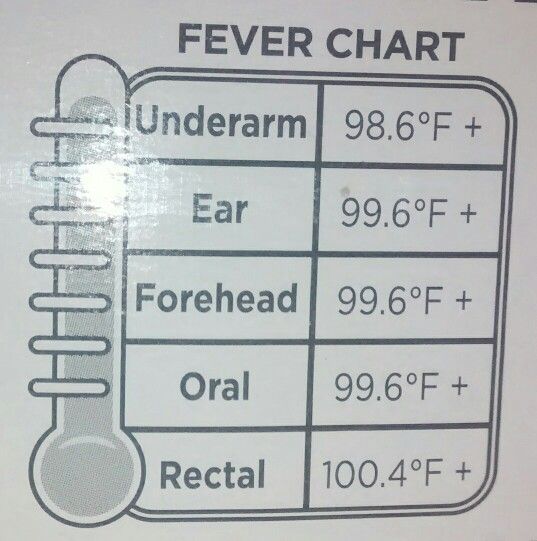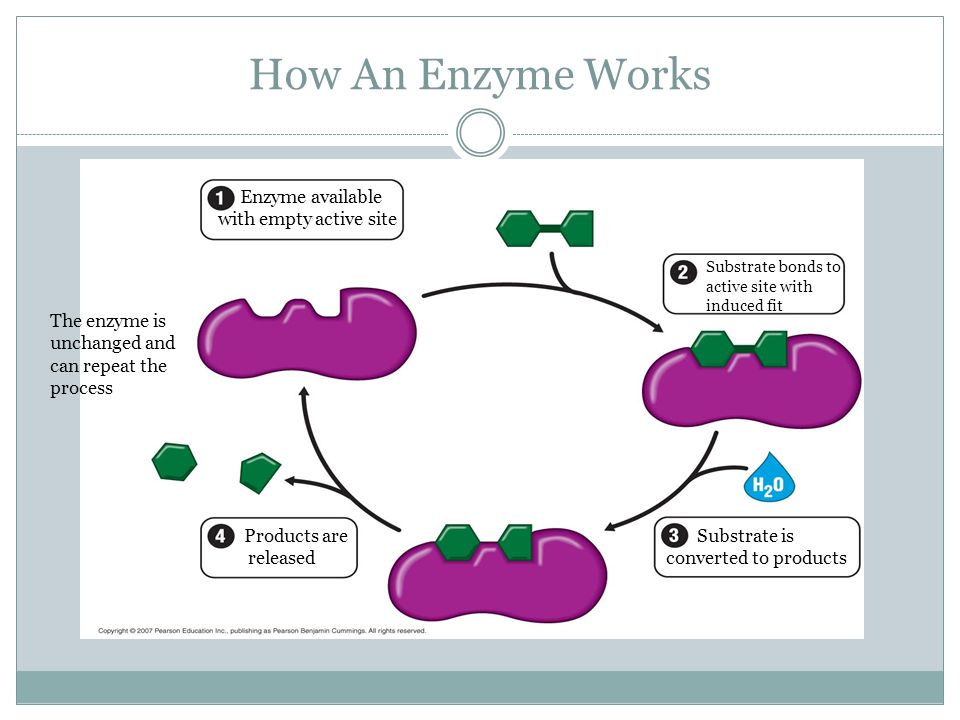What a stillborn baby looks like
Information about what happens when a Baby is stillborn
What is stillbirth?
The medical definition of stillbirth is the birth of a baby who is born without any signs of life at or after 24 weeks pregnancy. The baby may have died during pregnancy (called intrauterine death), labour or birth. Stillbirth is uncommon. In the UK, just over one in 200 births ends in stillbirth, which equates to around 4000 per year.
What happens when a baby dies in the uterus?
When a baby dies in the uterus (womb), the devastating truth is that the mum still has to go through with the birth. The loss of your baby will have come as a great shock. You may not be thinking about yourself at all, but doctors still have to advise you about what’s best for your health.
They should be sensitive to your feelings while explaining what happens next. Your labour will usually have to be started artificially (induction). Your doctors will discuss this with you and give you time to absorb what they have said before starting to induce your labour.
Some parents want to have the induction as soon as possible. Others prefer to wait for a few days so that they have time to take in what has happened and to see if labour starts by itself.
You may feel too numb to make a decision. All the while, your doctors will be concerned about your health. If they think there’s a chance you may have an infection, they’ll advise you to have an induction straight away. Whether you are induced or go into labour naturally, you will be admitted to the labour ward at hospital.
If you are expecting twins or more, and the death of one baby has been discovered, your doctor may advise you not to be induced. A lot will depend on whether or not the babies share a placenta, and at what stage the loss occurred. Your doctor may say it’s best to give your other baby or babies a chance to develop and mature a bit longer in your uterus.
Your babies can then be born at the same time, when it’s best for your remaining, healthy baby or babies. Some parents are upset by the idea of carrying the babies together in this way, although others find it comforting.
What happens when a baby dies during birth?
It’s uncommon that a baby dies unexpectedly during labour or birth. When something goes wrong, it is a highly traumatic and frightening experience for parents. They may not understand what is going on, as hospital staff may be too busy dealing with the emergency to explain things clearly.
Later, it may be discovered that an abnormality or an infection led to the stillbirth. However, in most cases it’s because of something that happened during labour or birth. A problem with the placenta or umbilical cord, such as a knot in the cord, may mean the baby did not have enough oxygen.
What causes a baby to be stillborn?
It’s not always possible to find out what has led to the death of a baby. It’s the one question that parents want answered, why their baby died. Unfortunately, in just under a third (28 per cent) of cases, doctors cannot tell them.
However, we do know of some factors that may lead to stillbirth:
- A baby simply did not grow enough in the uterus.
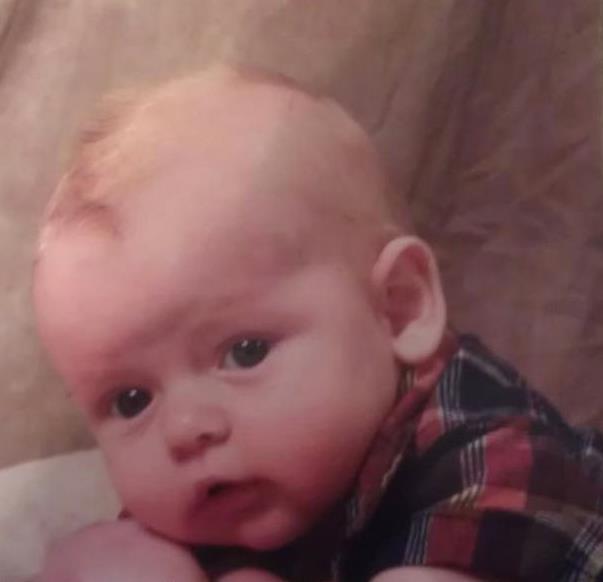
- A genetic or physical defect in the baby. This means the baby’s brain, heart or other organ has not developed properly.
- Heavy bleeding after 24 weeks of pregnancy. This can happen when the placenta begins to separate from the lining of the uterus. It is called a placental abruption.
- Pre-eclampsia, which can reduce blood flow to the baby via the placenta. This condition is associated with placental abruption.
- An illness suffered by the mum, such as diabetes, the liver condition obstetric cholestasis, or a blood-clotting problem.
- A problem with the way the baby is born. A baby’s shoulders may get stuck as he leaves the birth canal (shoulder dystocia), severely reducing oxygen flow to him.
- Infections, such as listeriosis, salmonella or toxoplasmosis.
Many stillborn babies are premature or smaller than they should be for their stage of pregnancy.
What happens after a baby is stillborn?
You may be asked if you would like to see, touch or hold your baby. This is a highly individual decision. Some parents may find it a help in the longer term to see their baby, others not.
This is a highly individual decision. Some parents may find it a help in the longer term to see their baby, others not.
Your instincts may be to see and cuddle your baby, but worries about what he or she might look like could hold you back. To help you to decide what is right for you, the midwife or doctor can describe your baby to you. Maybe one partner could look first, or you and your partner could look at a photograph of your baby. Some people know instinctively that they don’t want to see their baby, while others choose not to for religious or cultural reasons.
Many parents find comfort in creating memories of their baby. Photographs, hand or foot prints or a lock of hair become cherished keepsakes, giving parents a focus for their grief. Some parents want to wash and dress their baby. These are overwhelming, natural instincts. However, sadly, it’s not always practical for this to happen. If a baby is very premature or died some time ago, his skin will be too fragile for this type of handling.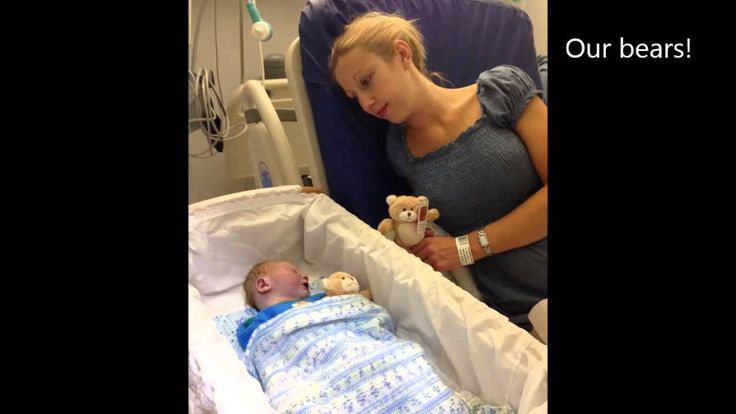
Decisions about what to do in this situation are very personal. There is no right or wrong way to respond. One parent may have different wishes to the other, or they may both need time to think about what would be best for them.
Some parents or members of their family want to observe religious rituals to mark the loss of the baby.
Most maternity wards have a bereavement room or quiet room where parents and their families can be together after their loss. Others may prefer to visit the hospital chapel or a multi-faith room. Whatever you ultimately decide to do in the hours or days after your loss, the hospital staff should support you in your decision and respect your wishes. Some hospitals have a bereavement midwife who is specially trained to give support.
Is it possible to find out what went wrong?
If doctors aren’t sure what caused a baby’s death it can sometimes be discovered by various investigations. These may include testing the mum’s blood, examining the placenta, or carrying out a post mortem examination (autopsy) of the baby. A post mortem examination may:
A post mortem examination may:
- identify a cause or causes of death;
- provide information about your baby’s development;
- provide information about health problems which will help your doctor to care for you in a future pregnancy;
- confirm the baby’s sex.
Not all parents agree to tests and a post mortem. It’s up to you whether you give the go-ahead. A post mortem will only be done with your written consent.
You can refuse for whatever reason you like, be it personal, religious or cultural. Sometimes, even with these investigations, a reason for stillbirth cannot be found. It can be very upsetting not to have an answer to all your questions. It’s hard to come to terms with how such a devastating event can happen, apparently for no reason.
You should be given plenty of information about the post mortem. Doctors will tell you why it may help, what will happen to your baby and how he may look afterwards. Do make it clear if you’d rather not know the details. You may decide you want to say goodbye to your baby before the post mortem. But in many cases, you’ll be able to see your baby again afterwards, if you want to.
You may decide you want to say goodbye to your baby before the post mortem. But in many cases, you’ll be able to see your baby again afterwards, if you want to.
The important thing is to take time over your decision, and be sure about how and when you want to say goodbye to your baby. Whatever you decide about the post mortem, your views and wishes should be respected. If you go ahead, you should be told when the results are likely to be available. You’ll be given an appointment to discuss them with your doctor.
What does it mean for my next pregnancy?
The decision to try for another baby can be difficult. It may be the last thing on your mind, or it may be all you can think about. For some mums, there is an overwhelming urge to be pregnant again as soon as possible.
You may be offered a check-up six weeks after your previous pregnancy ended, which may take place at the hospital with a consultant obstetrician. This is a good chance to ask questions that have occurred to you now you’ve had time to think. If you’re ready to talk about it, it also gives you a chance to discuss trying for another pregnancy. At times you may have a six week check-up with your GP and then follow up with a hospital appointment at a later date, when they may have more information for you.
If you’re ready to talk about it, it also gives you a chance to discuss trying for another pregnancy. At times you may have a six week check-up with your GP and then follow up with a hospital appointment at a later date, when they may have more information for you.
Waiting a while, perhaps six months or so, before trying to conceive again does give your body a chance to recover. Because of this, it may also give your next baby a good start. Some parents wish to plan their next pregnancy so that none of the significant dates coincide with those of the baby they’re grieving for.
If you’ve had an unexplained stillbirth, it may be comforting to know that there’s no reason why it should happen again. If your baby had a genetic abnormality you may be referred for genetic counselling. This process will enable you to discuss your options for a future pregnancy.
If you had health problem last time then you and your doctor may be able to work together to reduce your risk of another stillbirth.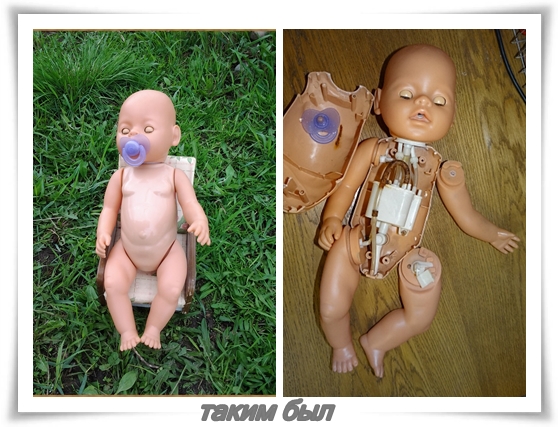 This is especially the case if there was a problem with the placenta or your baby’s growth. Extra monitoring and tests can reduce the chance of you experiencing another loss.
This is especially the case if there was a problem with the placenta or your baby’s growth. Extra monitoring and tests can reduce the chance of you experiencing another loss.
If you do get pregnant again in the future, it’s likely to be an anxious time for you. It may bring back lots of unwelcome memories and emotions related to your loss. Your anxiety is perfectly understandable. This pregnancy may feel like the longest nine months of your life. You’ll probably feel uneasy until your baby is safely in your arms.
The Mariposa Trust has a special division called GrowingYou which offers support to anyone who has lost a baby, who is now pregnant again (or thinking of becoming pregnant again). Visit the GrowingYou website, or contact via Twitter @GrowingYouInt or facebook.com/GrowingYouInt, our hope is that the team will make you feel less alone, and will help bring you much needed support.
Some mums are happy to return to the same hospital and the same medical team. Others prefer to ask their GP to refer them to another consultant or another hospital.
Important Note:
All information on this website, and advice and support offered by the charity team is on a non-medical basis. The charity advises that anyone going through baby loss, medical treatment or health issues, should seek advice from their own GP, Consultant, Midwife or Healthcare Professional.
Download the Saying Goodbye Support Leaflet (PDF)
Stillbirth - What happens if your unborn baby dies
Your baby's wellbeing will be monitored during your antenatal appointments, so any problems will usually be picked up before labour starts.
Confirming the baby has died
If it's suspected your baby may have died, a midwife or doctor might initially listen for the baby's heartbeat with a handheld Doppler device. You'll also be offered an ultrasound scan to check your baby's heartbeat.
Sometimes a mother may still feel her baby moving after the death has been confirmed. This can happen when the mother changes position. In this case, the mother may be offered another ultrasound scan.
This can happen when the mother changes position. In this case, the mother may be offered another ultrasound scan.
Finding out your baby has died is devastating. You should be offered support and have your options explained to you. If you're alone in hospital, ask the staff to contact someone close to you to come in and be with you.
Before the birth, a person with skills and experience with parents who have lost a baby should be available to talk with you about whether you would like to see a photograph of your baby, have a memento such as a lock of hair, or see or hold your baby.
Giving birth if your baby has died
If a woman's baby dies before labour starts, she will usually be offered medicine to help induce labour. This is safer for the mother than having a caesarean section.
If there's no medical reason for the baby to be born straightaway, it may be possible to wait for labour to begin naturally. This decision doesn't usually need to be made immediately, and it may be possible to go home for a day or two first.
In some cases, medicine that prepares a woman's body for the induction process may be recommended. This medication can take up to 48 hours to work.
Natural labour
While waiting for labour to begin naturally, regular blood tests are needed after 48 hours.
Waiting for natural labour increases the chance of the baby deteriorating in the womb. This can affect how the baby looks when she or he is born and can make it more difficult to find out what caused the death.
Induced labour
If the health of the mother is at risk, labour is nearly always induced using medicine. This may be done immediately if:
- the mother has severe pre-eclampsia
- the mother has a serious infection
- the bag of water around the baby (the amniotic sac) has broken
Labour can be induced by inserting a pessary tablet or gel into the vagina, or by swallowing a tablet. Sometimes, medicine is given through a drip into a vein in the arm.
After the baby is stillborn
After a stillbirth, many parents want to see and hold their baby. It's entirely up to you whether you wish to do so. You'll be given some quiet time with your baby if this is what you want.
It's entirely up to you whether you wish to do so. You'll be given some quiet time with your baby if this is what you want.
You can also take photographs of your baby and collect mementos, such as a lock of hair, foot prints or hand prints, or the blanket your baby was wrapped in at birth.
If you're not sure whether you want to take any mementos of your baby home, it's usually possible for them to be stored with your hospital records. If your hospital doesn't keep paper records, you may be given these mementos in a sealed envelope to store at home. This means you'll be able to look at them if you ever decide you want to.
You may also want to name your baby, but not everyone does this and it's entirely your choice.
Decisions about what to do after a stillbirth are very personal, and there's no right or wrong way to respond.
Breast milk
After a stillbirth, your body may start producing breast milk, which can cause discomfort and distress. Medicines (dopamine agonists) can stop your breasts producing milk. They cause few side effects and may also help you feel better emotionally, but they aren't suitable if you have pre-eclampsia.
They cause few side effects and may also help you feel better emotionally, but they aren't suitable if you have pre-eclampsia.
Some mothers prefer to let their milk supply dry up without medication. Your doctor or midwife can discuss your options with you.
Finding the cause
You'll be offered tests to find the cause of the stillbirth. You don't need to have these, but the results may help to avoid problems in any future pregnancies.
The tests you're offered may include:
- blood tests – these can show whether the mother has pre-eclampsia, obstetric cholestasis or, rarely, diabetes
- specialist examination of the umbilical cord, membranes and placenta – the tissues that attach you to your baby and support your baby in pregnancy
- testing for infection – a sample of urine, blood or cells from the vagina or cervix (neck of the womb) can be tested
- thyroid function test – to see whether the mother has a condition that affects her thyroid gland
- genetic tests – usually carried out on a small sample of umbilical cord, to determine whether your baby had problems such as Down's syndrome
More in-depth tests can also be carried out on your baby to try to establish the cause of death or whether there are any conditions that might have contributed to it.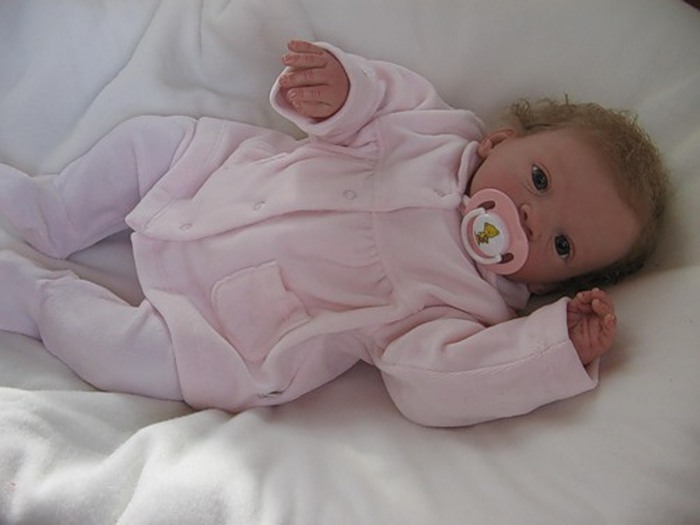 This is called a post-mortem.
This is called a post-mortem.
Post-mortem
A post-mortem is an examination of your baby's body. The examination can provide more information about why your baby died, which may be particularly important if you plan to become pregnant in the future.
A post-mortem can't go ahead without your written permission (consent), and you'll be asked if you want your baby to have one. The procedure can involve examining your baby's organs in detail, looking at blood and tissue samples, and carrying out genetic testing to see whether your baby had a genetic disease.
The healthcare professional asking for your permission should explain the different options to help you decide whether you want your baby to have a post-mortem.
Follow-up care
You'll usually have a follow-up appointment a few weeks after you leave hospital to check your health, and discuss the post-mortem and test results (if carried out).
This appointment is also an opportunity to talk with your doctor about possible future pregnancies. Before attending your follow-up appointment, you may find it helpful to write down any questions you have for your doctor.
Before attending your follow-up appointment, you may find it helpful to write down any questions you have for your doctor.
Bereavement support
A stillbirth can be emotionally traumatic for both parents, as well as for other family members. Help and support is available.
You may be introduced to a bereavement support officer or a bereavement midwife. They usually work in hospitals or for the local council. They can help with any paperwork that needs to be completed and explain choices you can make about your baby's funeral. They'll also act as a point of contact for other healthcare professionals.
Many people experience feelings of guilt or anxiety following the loss of their baby. Some parents experience depression or post-traumatic stress disorder (PTSD).
You may find it helpful to discuss your feelings with your GP, community midwife or health visitor, or other parents who have lost a baby. Read more about bereavement and dealing with loss.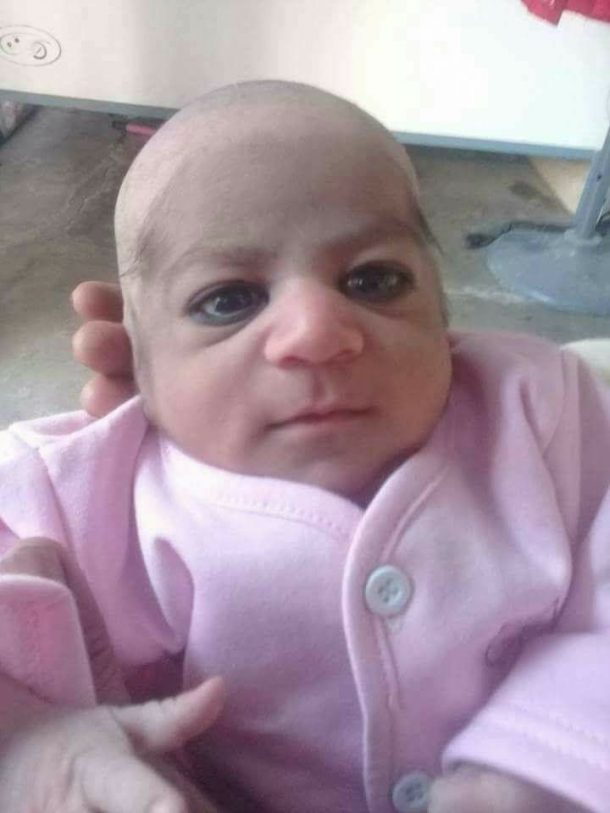
Support groups
Sands, the stillbirth and neonatal death charity, provides support for anyone affected by the death of a baby. You can:
- call the Sands confidential helpline on 020 7436 5881 – 9.30am to 5.30pm Monday to Friday, plus 6pm to 10pm Tuesday and Thursday
- email [email protected]
There are many other self-help groups in the UK for bereaved parents and their families. You can search for bereavement support services in your area.
These groups are usually run by healthcare professionals, such as baby-loss support workers or specialist midwives, and parents who have experienced stillbirth.
Some support groups are for women whose stillbirth has a specific cause. For example:
- Action on pre-eclampsia (APEC)
- ICP support (obstetric cholestasis, or OC)
- Group B strep support
Registering a stillbirth
By law, stillborn babies have to be formally registered. In England and Wales, this must be done within 42 days of your baby's birth, within 21 days in Scotland.
You don't have to register a stillbirth in Northern Ireland, but you can if you want to as long as it's within a year of the birth.
See GOV.UK for more information about registering a stillbirth.
Page last reviewed: 16 March 2021
Next review due: 16 March 2024
A famous model explained why she posted a photo with a stillborn son on the Web
November 28, 2018 16:48
Instagram / Yana Youryani
Instagram / Yana Youryani
Well-known model and blogger Yana Yatskovskaya, who has almost 770,000 followers on Instagram (banned in the Russian Federation), had to explain herself after the publication of the picture, which shocked many. On her page on the social network, she posted a photo with her stillborn son, "bogatyr Sasha."
On her page on the social network, she posted a photo with her stillborn son, "bogatyr Sasha."
Well-known model and blogger Yana Yatskovskaya, who has almost 770,000 followers on Instagram (banned in Russia), had to explain herself after the publication of the picture, which shocked many. On her page on the social network, she posted a photo with her stillborn son, "bogatyr Sasha."
View this post on Instagram
⠀ Today, on Mother's Day, I became a mother for the second time. Mother of our heavenly boy. ⠀ I share with you because you are dear to me and provide just the strongest support, for which I am very grateful. ⠀ I gave birth to our hero Sasha in the morning❤️ Soon I will share the whole story with you. No, I didn't clean and I didn't go to the hospital. ⠀ The reason for what happened to the mask became immediately visible, this is a true knot that was pulled tight.
But more on that later... ⠀ Congratulate your moms and thank you for life! Kiss the kids and be glad you have them! ⠀ It's rainy and gray in Kyiv, it's drizzling. Like in the Maldives that day. ⠀ I see a lot of families, I smile. This is happiness. I thank the baby for making us happy, I believe that the bunny protects us ❤️ ⠀ There is a lot of love and gratitude in my heart. Tears are flowing from my eyes! Thank you for your support, I will write soon! I will hug mine❤️
Posted by Ian Youryani❤️ (@youryani) Nov 25, 2018 at 5:03 AM PST
Yana, 27, was expecting her second child, but her heart stopped beating late in her pregnancy. The model, who was with her husband at that moment in the Maldives, admitted that when they were riding in a boat, she felt "something was not right."
She did not want to purge in a foreign country, because she perceived the child that was in her womb, not as a "fetus", but as a person. Yana decided (and her husband supported her decision) to fly to doctors she knew in Kyiv.
There she managed to "give birth to a baby", whose heart stopped beating. Then Yana wrapped him in a blanket and took a picture, which she posted on the social network, accompanied by the caption that she became a mother for the second time. "The mother of our heavenly boy," Yana added.
However, not everyone understood the meaning of these words, so some even congratulated the model on the addition to the family.
When the subscribers realized that the child in the photo was not alive, it caused a mixed reaction. Yana later explained that for her this is a photo with her son, whom she and her husband love very much, and for them he is "a full-fledged person, a family member."
Yana also reminded that in some countries (for example, in Germany) a stillborn child is beautifully dressed and given to the parents, they are given the opportunity to say goodbye. However, she notes, “few people in the Russian world understand this”: “mothers clean themselves and don’t even look at their children. ”
”
Yana did not give her baby to anyone and buried her as a family member. In response to such a frank story about the tragedy, many women responded, who expressed admiration for the strength of the spirit of a mother who lost her child, but who managed to relate to what happened in this way.
in the world accidents society news
“Given in a box. They buried themselves” Why dead babies are considered biological garbage in Russia Its mission is to support women who have lost a child before, during and shortly after childbirth. According to the Light in Hands charity foundation, in 2016, 17,000 stillbirths were registered in Russia. Approximately the same number of pregnancies were terminated for medical reasons. For a woman, the news that she will have to have an abortion because doctors doubt the viability of the fetus becomes a tragedy. A family in such a situation is often left alone with their grief, and in dealing with doctors, instead of receiving support, they receive additional psychological trauma.
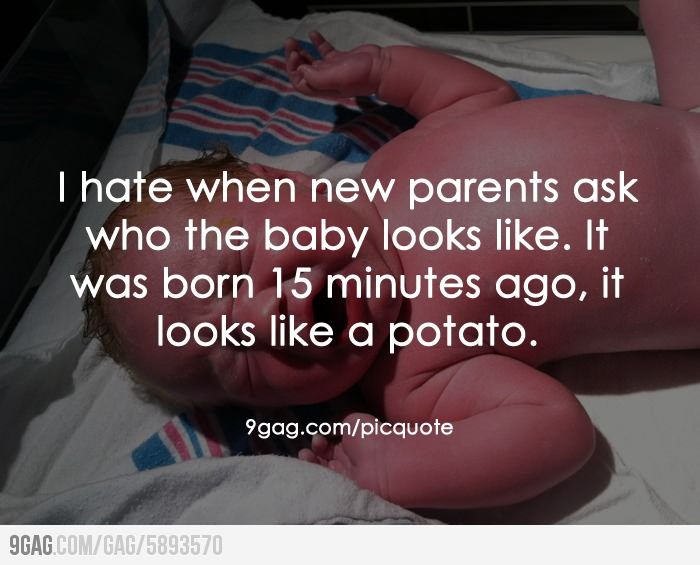 Why is this happening and is it possible to help them - Lenta.ru found out.
Why is this happening and is it possible to help them - Lenta.ru found out. The editors intentionally chose a harsh tone in the presentation of this material in order to draw attention to the problem of ethical treatment of mothers who have lost their children during childbirth.
Lenta.ru
Newborn waste
Three years ago, Natalya and Vladimir Skripin (surname changed) from Yekaterinburg died in a hospital during childbirth. The doctors refused to release the body for burial. Legally, they did not violate anything, because according to Russian laws, a fetus born no earlier than the 22nd week of pregnancy, weighing at least 500 grams and at least 25 centimeters tall is considered a person. Everything else is biological waste and must be disposed of as sanitary waste.
“The pregnancy was long-awaited,” Natalia recalls. “At first everything went well. Even toxicosis did not torment. And then I went with my husband for an ultrasound. He wanted to know the gender and get a photo of the baby. I can still see the expression with which the doctor looks at the computer screen and hides his eyes from me. And I have a smile on my face. Because it is clear that something terrible has happened. And then the verdict: "The fetus is not viable."
He wanted to know the gender and get a photo of the baby. I can still see the expression with which the doctor looks at the computer screen and hides his eyes from me. And I have a smile on my face. Because it is clear that something terrible has happened. And then the verdict: "The fetus is not viable."
Photo: Alexander Ryumin / TASS
The deadline was already long — five months. Doctors insisted on artificial childbirth. During this manipulation, the pregnant woman is given special pills that cause contractions. Parents did not agree and ran from one local luminary of gynecology to another with a crazy hope: suddenly a mistake.
“You have no idea how much pressure the doctors put on us when they found out that we didn't want to terminate the pregnancy,” Natalia sobs. - It's very scary. And this squeamish tone - as if a threat to all mankind is growing in my stomach!
According to Natalia, everything ended naturally - a spontaneous miscarriage. Natalya really wanted to look at her son, but in the first minutes after the birth she was almost unconscious.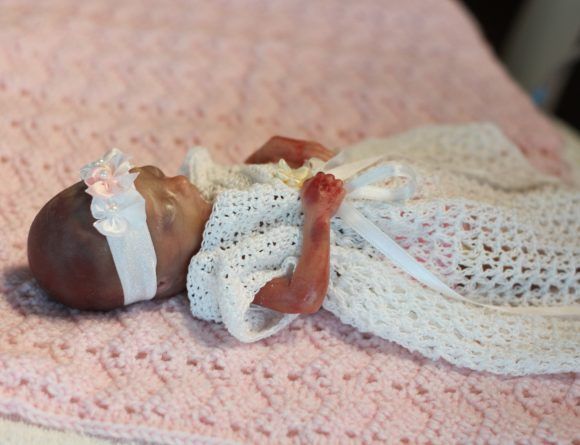 And then no one allowed. They also refused to give out the body for burial with the wording: “You will give birth again. Everything is for your own good, so that at night you don’t dream of horrors later. ”
And then no one allowed. They also refused to give out the body for burial with the wording: “You will give birth again. Everything is for your own good, so that at night you don’t dream of horrors later. ”
Despite the fact that several years have passed, Natalya says that she cannot forget her failed son.
— My mother-in-law and even my mother erased everything from memory and pretend that the child didn’t exist, — continues Natalya. — I really want to, but I can’t reset my memory. I often think about who my boy would look like. I didn't even see him. I dream about how it is thrown into a landfill, like biological garbage.
At family forums, the topic “Should embryos be buried” is constantly discussed. Tragedy survivors share experiences. Since the law does not endow the fetus with human rights, a birth and death certificate is not issued for it - therefore, it is impossible to officially arrange a burial. But many do it bypassing bureaucratic procedures.
“My baby, who was born at the 20th week of pregnancy, died,” says Irina, a Muscovite. - The hospital did not want to give the body, they said that the state buries the stillborn. But then the husband informally agreed. Issued in a box. They buried themselves in grandfather's grave. For a long time I could not decide to come to the cemetery. And now I go there often. It helps to let go of grief.
- The hospital did not want to give the body, they said that the state buries the stillborn. But then the husband informally agreed. Issued in a box. They buried themselves in grandfather's grave. For a long time I could not decide to come to the cemetery. And now I go there often. It helps to let go of grief.
The writer Anna Starobinets was one of the first to raise the topic of pain from failed parenthood in the public space. In the autobiographical story “Look at him,” she told how, at the 16th week of pregnancy, she found out that her child was terminally ill. The book details what the mother-to-be faces if something goes wrong. A woman is treated like an inanimate object that is not supposed to have an opinion. For example, if a rare pathology is found in an embryo, then the doctor, without even asking permission from the patient, may invite students to look at the “interesting object” for educational purposes.
Photo: Sergey Venyavsky / RIA Novosti
Against the background of global problems in Russian healthcare, the lack of ethics does not seem to be something terrible, but recently Ekaterina Nekrasova, an ultrasound diagnostician from St. Petersburg, published an article in a professional journal in which she expressed her thoughts about how to properly counsel couples with "problem" pregnancies. The doctor gives specific recommendations on the tactics of conducting a conversation.
Petersburg, published an article in a professional journal in which she expressed her thoughts about how to properly counsel couples with "problem" pregnancies. The doctor gives specific recommendations on the tactics of conducting a conversation.
“Giving bad news to a patient is a certain test for a doctor,” explains Nekrasova. - A defensive reaction in a morally difficult situation is the desire to end an unpleasant conversation as quickly as possible, since it is difficult not only for the patient, but also for the doctor.
Dr. Nekrasova is now working on the details of a practical training on "Breaking bad news" for doctors of prenatal (prenatal) diagnostics, in which professional actors will participate.
“Parents should have a chance to say goodbye”
In Russia, people are just beginning to talk about the need for perinatal palliative care, including psychological help for parents. And in Europe and America, this direction has been developing for a long time.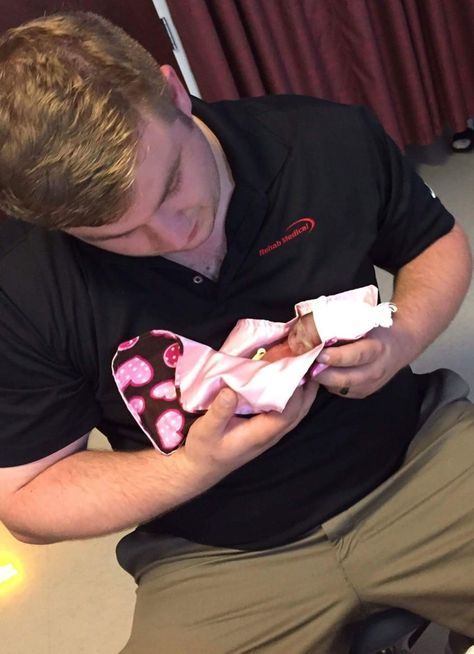 At the Palliative Care for Children conference organized by the Vera Charitable Foundation, Joan Wolf, Head of the Department of Palliative Care at the Boston Children's Hospital (USA), spoke about this. Later, she answered questions from Lenta.ru.
At the Palliative Care for Children conference organized by the Vera Charitable Foundation, Joan Wolf, Head of the Department of Palliative Care at the Boston Children's Hospital (USA), spoke about this. Later, she answered questions from Lenta.ru.
Lenta.ru: Why is the US concerned about this problem?
Joan Wulff: A number of scientific papers have been published in which neonatologists have pointed out that many newborns die in agony without receiving any help, and their parents are left without support. This problem was widely discussed, and about 10 years ago, at the request of society, a new service appeared.
The main task of the perinatal palliative care is to help the mother and family when it is discovered that the fetus has serious pathologies. We are talking about conditions when a child can die in the womb, live a short time or remain disabled. Usually the starting point is the office of an obstetrician-gynecologist who understands that the fetus has serious problems. The doctor talks about the diagnosis, and then, if necessary, calls the palliative care team. Experts come and discuss different options.
The doctor talks about the diagnosis, and then, if necessary, calls the palliative care team. Experts come and discuss different options.
Photo: China Stringer Network / Reuters
Could there be more than one? In Russia, in case of serious malformations, doctors strongly recommend terminating the pregnancy.
In the US, the situation is similar: most families reported that doctors persuaded them to have an abortion. Most often this happens with identified genetic disorders. In such cases, many gynecologists for some reason are sure in advance that the woman will want to have an abortion. But it all depends on what values the family professes. Do not forget that the United States is a religious country, there are many Catholics here. Under no circumstances can they have an abortion. Often mothers, even fully aware of the difficulties ahead, decide to give birth and wait for the natural development of events.
Who is the palliative team?
Usually a pediatrician with a year of training in palliative care, a nurse and a social worker.
What exactly do they do?
The most important thing is that they provide complete information about how the disease will develop, what to expect. If the family decides not to terminate the pregnancy, they prepare the parents in advance for difficulties. The issue of resuscitation is being discussed - with the help of a ventilator, life can be maintained for a long time. If the natural path is chosen, the doctor decides how to alleviate the child's condition from the first seconds of life so that he does not feel discomfort. Parents should have a chance to hold their child in their arms, to say goodbye. We always suggest doing this, even in case of premature birth, when the baby is very young.
But why? In Russia, doctors, on the contrary, believe that this can negatively affect the psyche of a woman. Long send-offs are extra tears...
Previously, the US adhered to exactly the same position. But there are scientific studies that in the long term, for many, such alleged “care for the psyche” led to serious mental problems.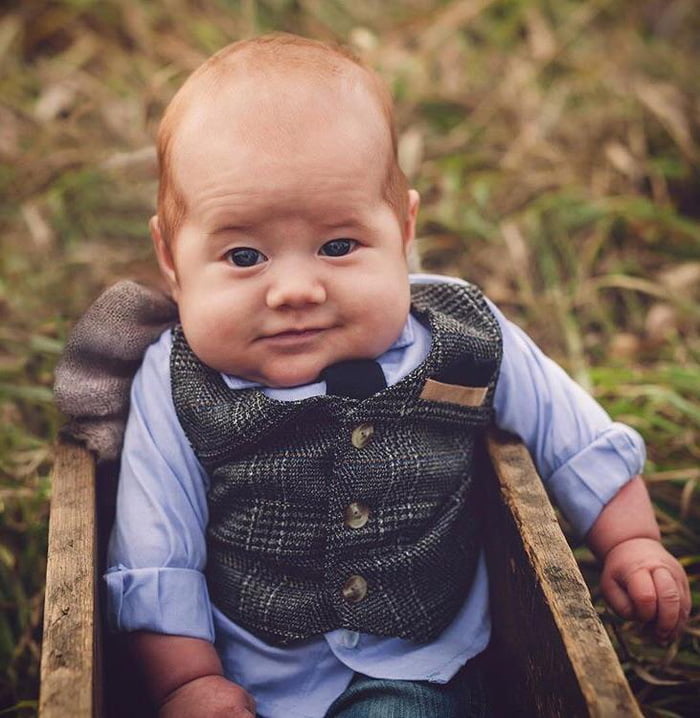 The woman has an unprocessed psychotrauma. She does not understand - there was something or not. The rite of farewell, as it were, puts an end to it. Therefore, now all mothers are asked the question: do you want to? Most agree.
The woman has an unprocessed psychotrauma. She does not understand - there was something or not. The rite of farewell, as it were, puts an end to it. Therefore, now all mothers are asked the question: do you want to? Most agree.
“We remember your child”
And if the child has obvious physical deformities, won't this aggravate the mother's condition?
Doctors warn relatives what to expect, what to prepare for. Even a child with developmental anomalies is always useful for mothers to hold in their hands. For many parents, this baby, despite all the shortcomings, is a favorite, he is a part of them. The child is usually cooked before being handed over to the hands of relatives. They swaddle him, put on a hat. And he doesn't look terrible. We also always offer to make prints of arms and legs so that parents have something to remember. We partner with a professional association of volunteer photographers who, as volunteers, invite families to take professional photographs of a child before or after death.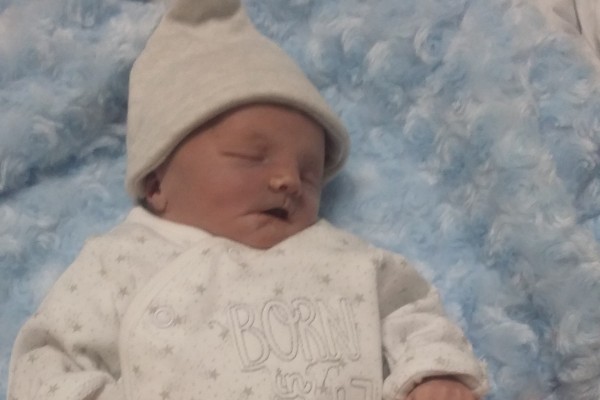 This remains later as evidence that their child was, he did not disappear without a trace. We invite all family members and close friends to participate in the farewell ceremony.
This remains later as evidence that their child was, he did not disappear without a trace. We invite all family members and close friends to participate in the farewell ceremony.
Photo: Valery Sharifulin / TASS
Even older children, if they are in this family?
If a brother or sister is over four years old, it is right for them to have this experience. That is, it is better to participate in a family tragedy than to remain in the dark. Children still feel that something bad is happening, and can draw terrible pictures in their imagination. At such moments, they are given less attention, and some take it personally - they think that bad things happened because they did not obey. Others suddenly decide that they are no longer loved. And when they themselves see what is happening, it also has a psychotherapeutic effect on them.
In Russia, the bodies of premature babies are often not allowed to be buried because it is legally considered "bio-waste".
Our family decides everything. Parents are guided by their traditions. Usually such a child is buried in the same way as everyone else.
Parents are guided by their traditions. Usually such a child is buried in the same way as everyone else.
Have there been cases when terrible forecasts of doctors turned out to be erroneous and an absolutely healthy child was born?
Misdiagnosis can be made, but it mainly concerns chromosomal abnormalities. For example, Down syndrome, Edwards. A couple of days ago we had almost a miracle. At the stage of pregnancy, the child was diagnosed with a serious pathology of the skeleton. It was seen that the fetus had abnormally short limbs and a very small chest. Doctors were sure that the girl would die in the process of childbirth. However, a normal baby was born. Of course, we are not talking about absolute health, the skeleton is underdeveloped, but the most important thing is that the child can breathe on his own. And it's practically a miracle. A gynecologist at one time recommended an abortion to the family.
Do you have any recommendations on how exactly a doctor should tell a woman bad news, what expressions can be used?
Of course, there are no pre-prepared scenarios where all the replicas are registered.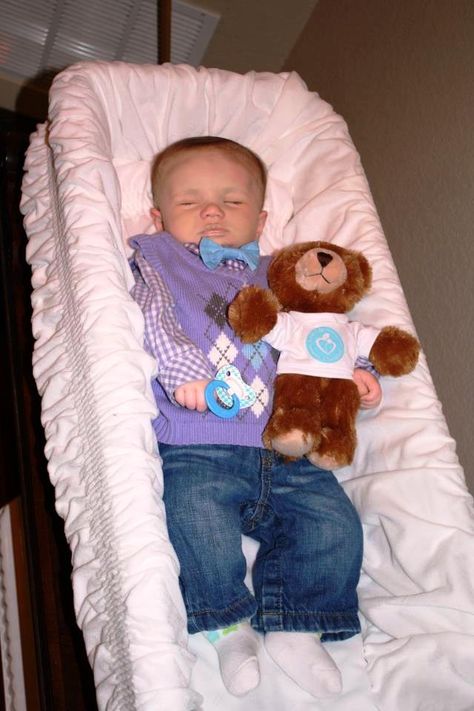 But on this topic, trainings are necessarily held, where different situations are played out with the actors. A doctor of any specialty can participate. However, there are many specialists in the same palliative who are trying to do this work without proper training. They make a lot of mistakes in communicating with families.
But on this topic, trainings are necessarily held, where different situations are played out with the actors. A doctor of any specialty can participate. However, there are many specialists in the same palliative who are trying to do this work without proper training. They make a lot of mistakes in communicating with families.
What, for example?
I can give an example not from the perinatal palliative, but the situation is similar. I interviewed the parents of children who died of cancer. Among others, the questionnaire included the question: “What is your impression of how you were told the tragic news?”. Parents often recalled that doctors and nurses were too emotional in these situations. Sometimes they even felt some anger towards the families of the sick.
Doctors were angry because they could not cure the patient, could not help?
This happened, for example, when the parents refused the solutions recommended by the doctor. And in perinatal medicine, a doctor can often say rudely: “Don't you understand that your child will be born dead? Why don't you terminate the pregnancy?" If a woman even once heard this, she will never forget it.